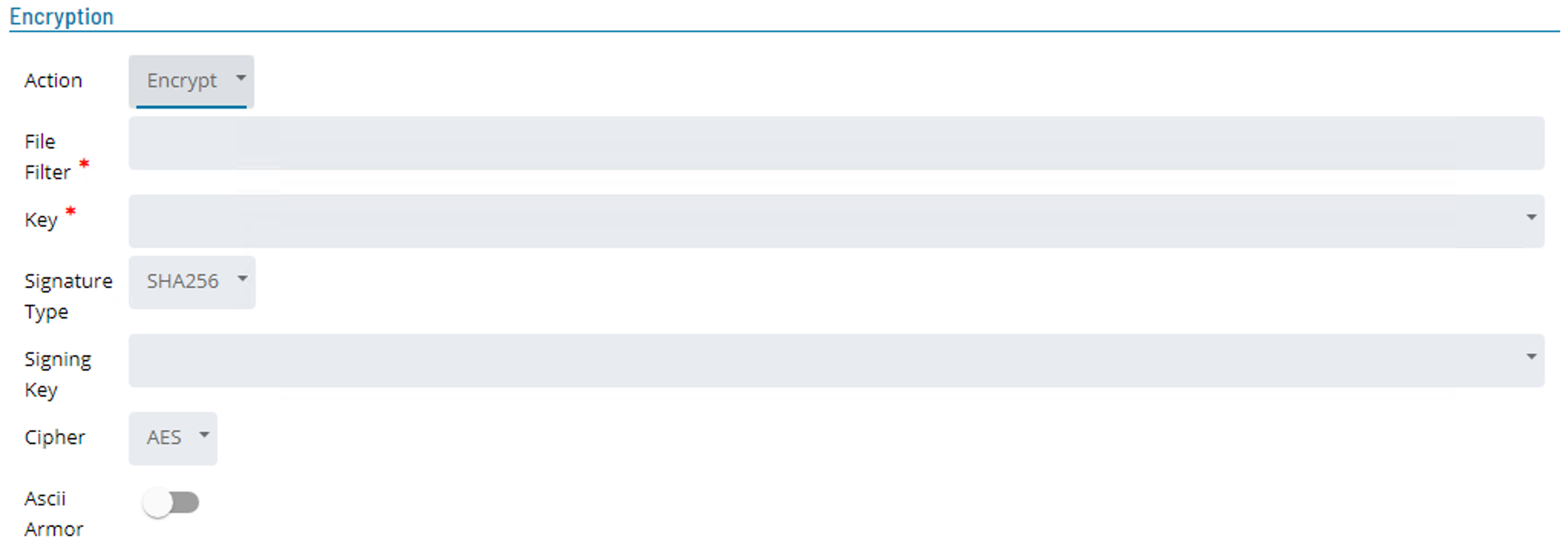Encryption and Decryption
Encryption
This step will encrypt all files that match the File Filter specified in the Source section with a specific PGP public key.The encrypted output files are named by adding a .pgp extension to the source file name.

- File Filter
- This defines the files of the file set to be included in encrypted file.
- It supports wild cards ( ? ) and ( * ) as well as multiple definitions seperated by the pipe ( | ) character (Example: *.dt1|*.dt2).
- When requiring all files in the file set an asterick ( * ) should be used instead of asterick dot asterick ( *.* ) as the second definition will only select files that have a name and and extension.
- Key
- Unique identifier of the public key used for encryption. Select the key name from the dropdown list.
- Signature Type
- The encoding type used to encode the Signing Key.
- Select the encoding type from the dropdown list.
- Values: MD5, RIPE160, SHA1, SHA256, SHA512, SHA3 - 256, SHA3 - 512.
- Default: SHA256
- Signing Key
- Digital signature enabling the recipient of the file to verify the authenticity of the information's origin, and also verify that the information has not been tampered with.
- Cipher
- Select the symmetric cipher to be used to encrypt the file set from the dropdown list
- Values: CAST5, AES, AES192, IDEA, Blowfish, Twofish, 3DES.
- Default: AES
- Ascii Armor
- Indicates whether the encrypted representation of a file should consist entirely of printable ASCII characters
- Values: True or false
- Default: False
Decryption
The decrypt step decrypts PGP or GPG encrypted source files in the current file set.

- File Filter
- This defines the files of the file set to be decrypted.
- It supports wild cards ( ? ) and ( * ) as well as multiple definitions separated by the pipe ( | ) character (Example: *.dt1|*.dt2).
- When requiring all files in the file set a single asterick ( * ) should be used instead of asterick dot asterick ( *.* ) as the second definition will only select files that have a name and and extension.